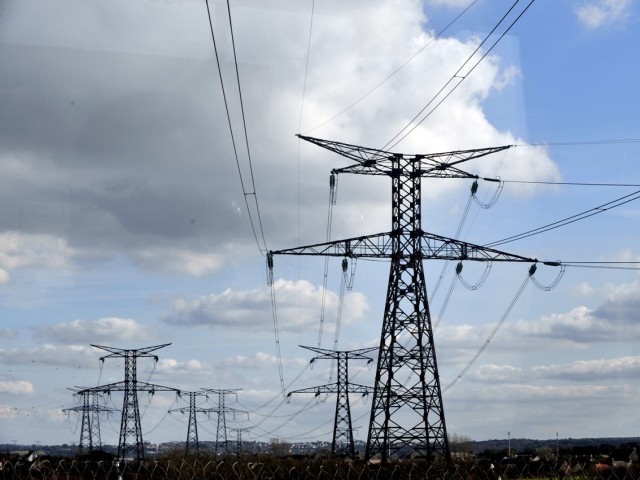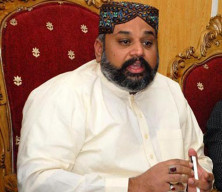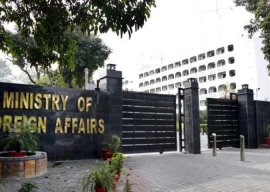
Experts at a workshop on Wednesday called for formulation of an integrated policy keeping sources, resources, costs and sustainability in view to resolve energy crisis.
They described the present policy as a collection of power point slides and pointed to the compartmentalised approach to the energy issue.
The workshop on “Solutions for Energy Crisis in Pakistan” was organised by Islamabad Policy Research Institute (IPRI) in collaboration with the Hanns Seidel Foundation (HSF).
The participants unanimously agreed that there were gaps between policy and implementation which needed to be removed to find a solution to the crisis.
Moreover there was a need to differentiate between energy and power. Pakistan did have a power policy but a comprehensive energy policy covering all aspects such as hydrocarbons (oil and gas sectors), alternative energy resources and nuclear energy was lacking.
Ms Ameena Sohail, energy expert and corporate lawyer pointed to the institutional disarray such as was seen in opposition to privatization and insolvency of the power sector. There was serious control paralysis. What was needed was national vision and mission to meet the challenges.
Dr Waqar Ahmad of Sustainable Development Policy Institute (SDPI) speaking on investment and funding in the energy sector described the bottlenecks and called for rationalisation of SROs and cutting down cumbersome procedural formalities.
Dr Shaukat Hameed Khan, Coordinator General Comstech, speaking on resource mobilisation analysed the issue of fuels and finances in respect of different options particularly coal and the nuclear power.
Dr Shaheen Akhter favoured greater reliance on hydel power through run of the river projects. Mustansar Billah Hussain emphasized the involvement of universities and education institutions in promoting awareness about conservation.
Published in The Express Tribune, December 18th, 2014.
COMMENTS (5)
Comments are moderated and generally will be posted if they are on-topic and not abusive.
For more information, please see our Comments FAQ

















Pakistan’s establishment should make an energy mix policy utilizing all the available resources according to the budget allocation. Energy crises issue is a serious threat to progress and we cannot resolve it over a period of 1 or 2 years. There are several sources like wind and solar which were started in Pakistan but they all were ceased by the corruption in their projects. Nuclear on the other hand seems to be the reliable and viable option in which Pakistan has expertise. Around the world states are now going for the nuclear energy like the UAE, Turkey and even Japan is again operationalizing their nuclear energy production.
Nuclear is so lucrative in costs that Japan is turning back to it despite having Fukushima disaster. Also German government is pondering over to reverse its earlier decision to close down all nuclear power plant. Renewable energy sources are acknowledged to be much more expansive than nuclear if we talk about economics. Nuclear power is the most suitable source if we see on long term basis. the unit price is least after hydal sources. And a fact that most people don't know is that nuclear power plants are the safest and most reliable of all other types of power plants. their redundancy and safety is greater than other power plant. Their shutdowns are minimum and they have the maximum power factor as compared to other plants in pakistan. they are environment friendly. And as far as capital cost is concerned, after 10 years, they achieve their break-even point i.e. capital cost is retrieved.
Pakistan’s energy crisis if not tackled at both operating and strategic level in the immediate future might become a national security threat. Pakistan’s energy crisis resulted primarily from the failure of a strategy which was driven by short term considerations and misguided notions about the role of nuclear plants power generation. Energy demand is increasing day by day because of urbanization, climate change and global warming. Therefore we must focus on nuclear power generation which is a cheaper and easy way to fulfill our energy demands.
Pakistan’s energy demand had grown at an annual consumption growth rate of 4.8 percent in the past five years, but now it is expected to grow at 8 to 10 percent per annum. There is need for a high and sustained growth in energy supply and infrastructure capacity of 7 to 8 percent per annum to support the steady growth in the state’s GDP. Nuclear energy is a quintessential part of Pakistan’s energy mix. Scarce hydrocarbon sources pose political, economic and environmental issues. Nuclear energy is a safe and viable alternative. Pakistan spends $1 billion in oil imports per 1,000 MW, which is not cost-effective. Nuclear energy can reduce that burden.
With the global increasing population and depleting resources, there seems to be deficiency in the proper availability of power and energy to the masses. Pakistan is also a country where acute energy short fall can better be observed. This is the very point where policy makers must adhere themselves for making policies which can be executed on time, other wise this short fall would go on and the economic sector of the country would continue to suffer at large. There is a need for policy makers and the government to execute the energy plants to the best possible way so that the economic sector of the country can be re-established.